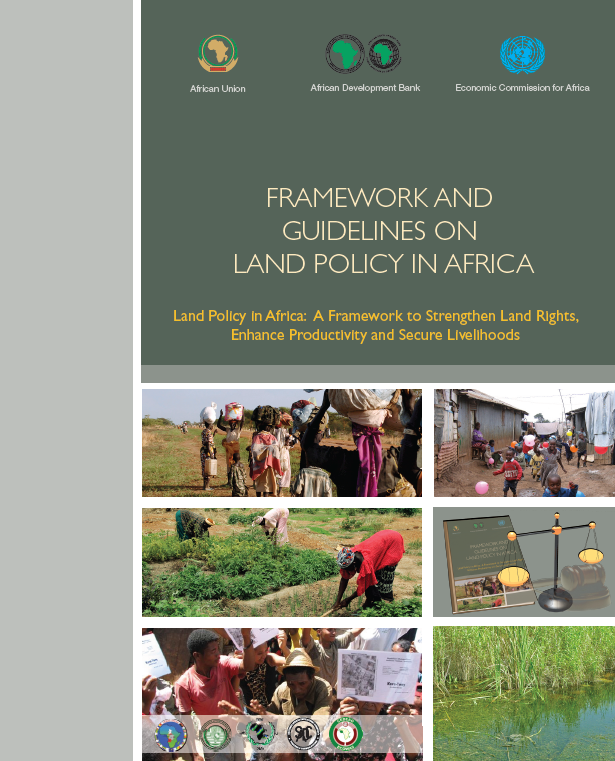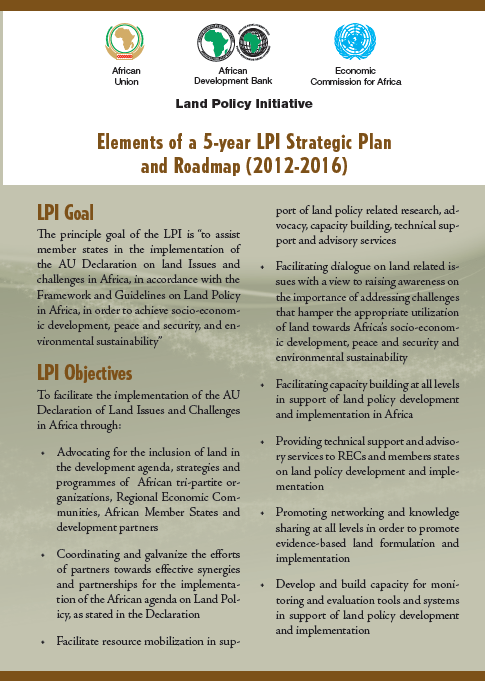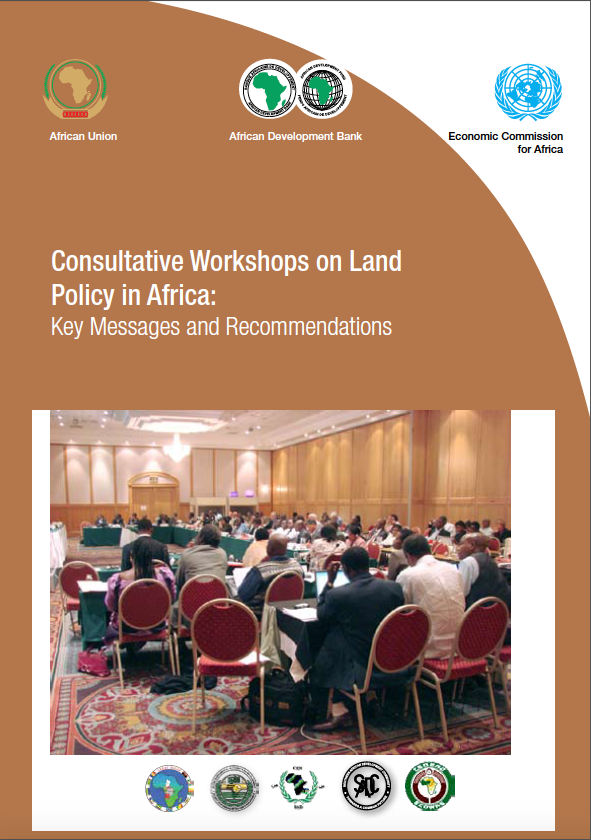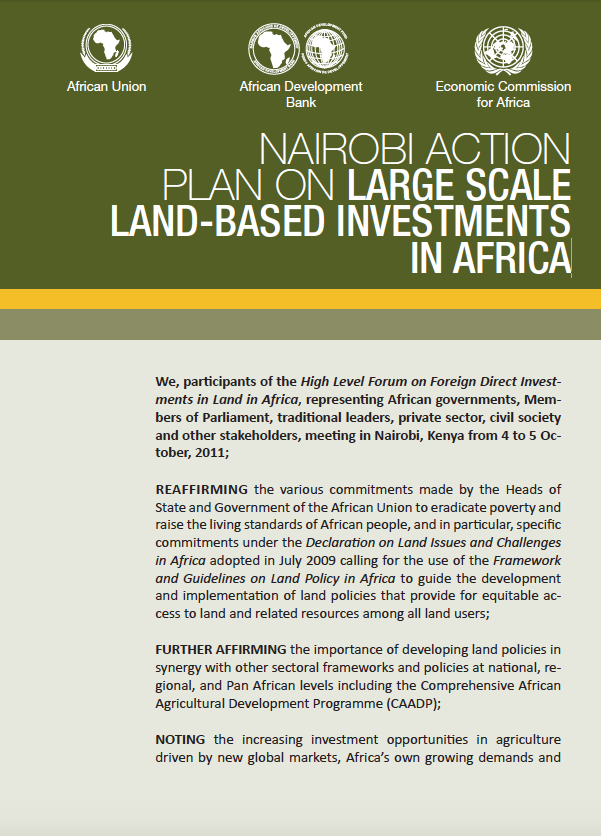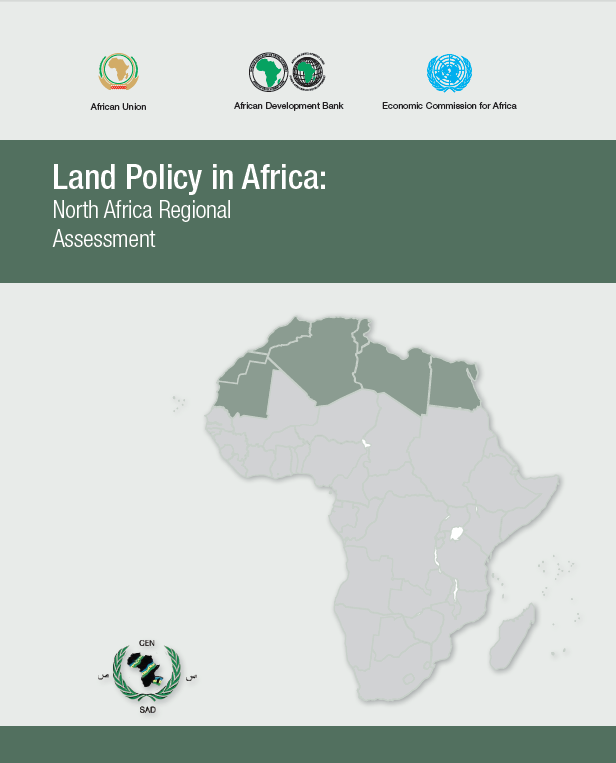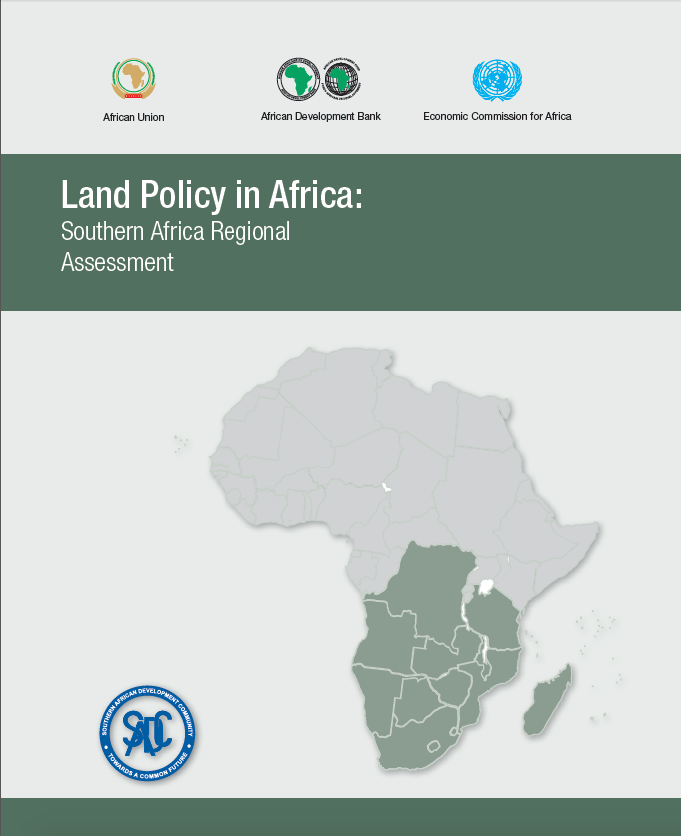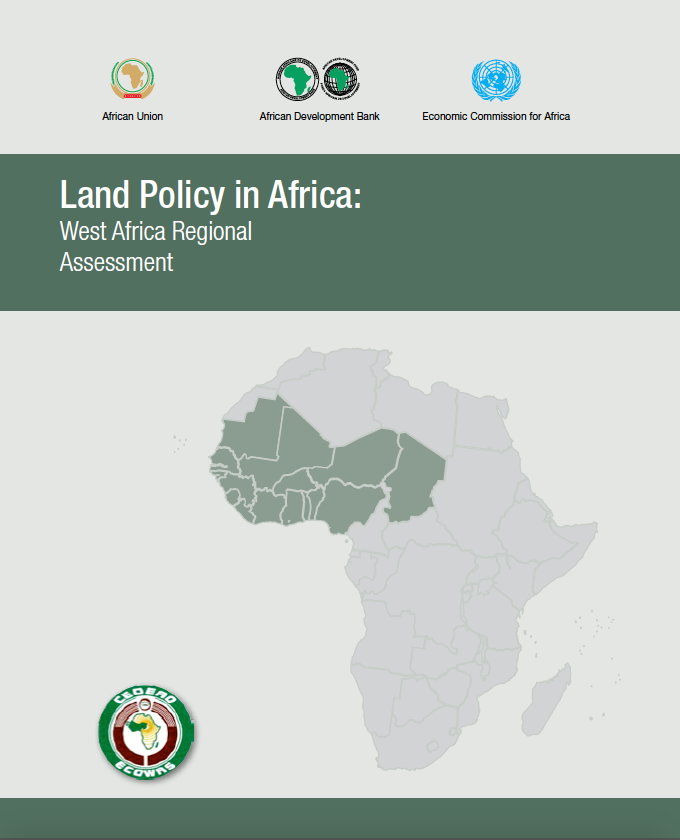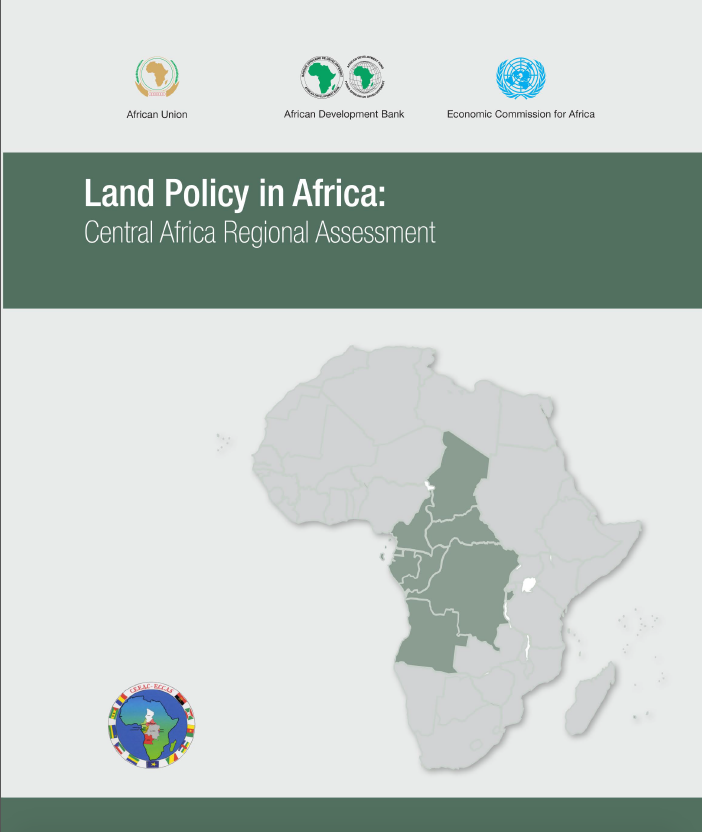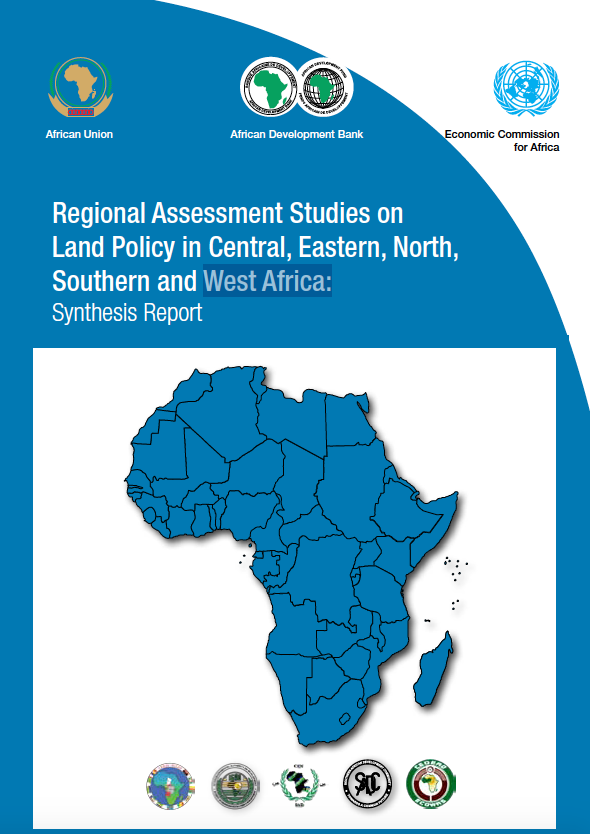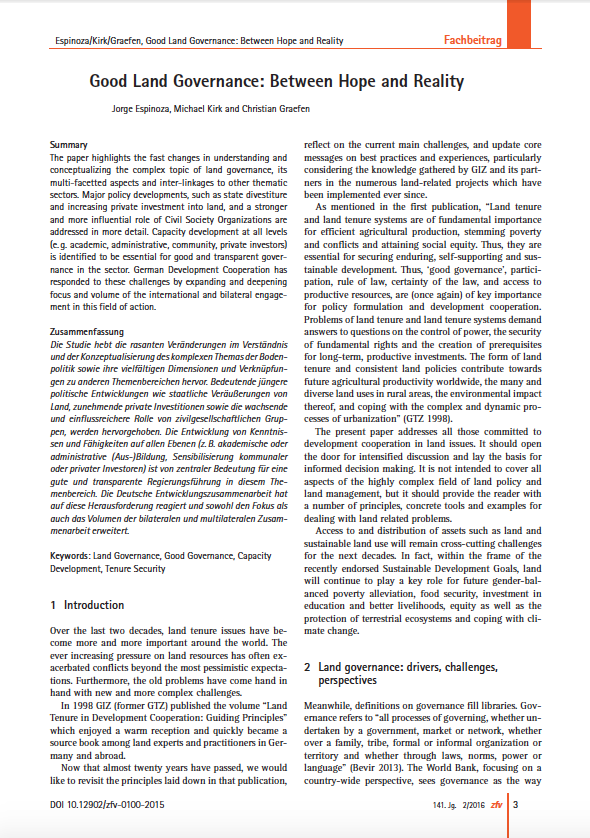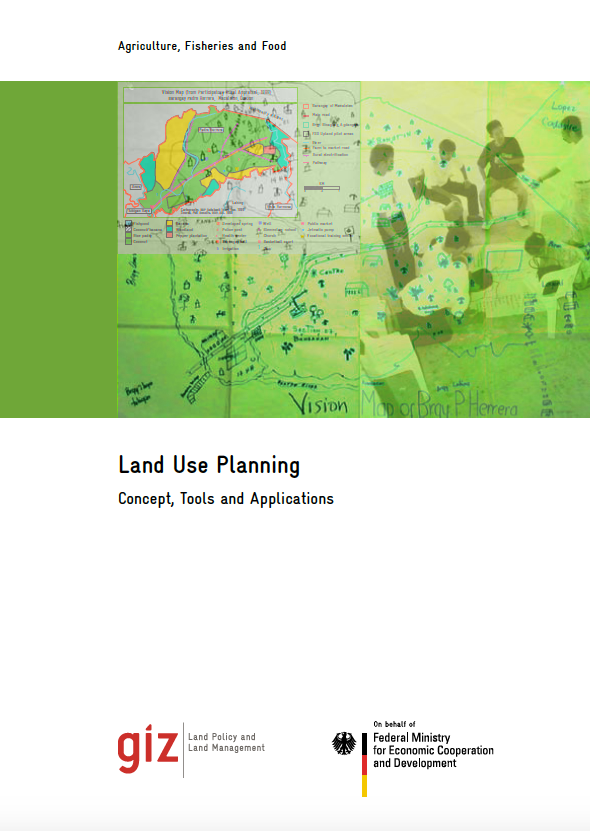Framework and Guidelines on Land Policy in Africa
The Framework and Guidelines on Land Policy is a joint product of the partnership and collaborative effort of the African Union Commission (AUC), the UN Economic Commission for Africa (ECA) and the African Development Bank (AfDB) to promote Africa’s socioeconomic development, through inter alia, agricultural transformation and modernisation. Initiated in 2006, the aim of the Land Policy Initiative (LPI) was to examine land policy issues and challenges in Africa with a view to developing a framework to strengthen land rights, enhance productivity and improve livelihoods.

